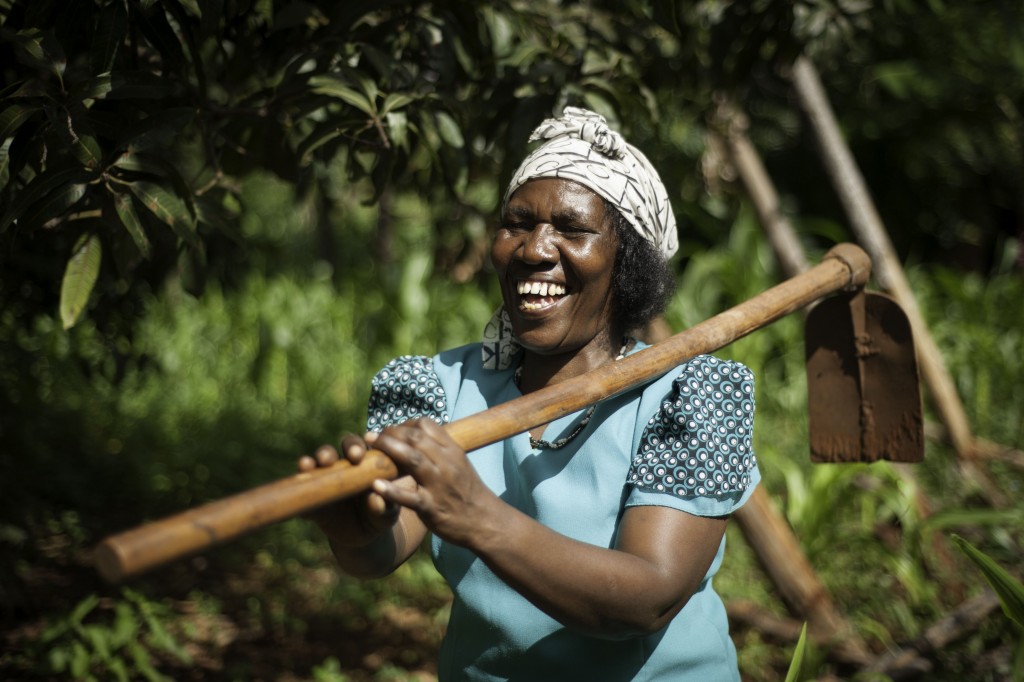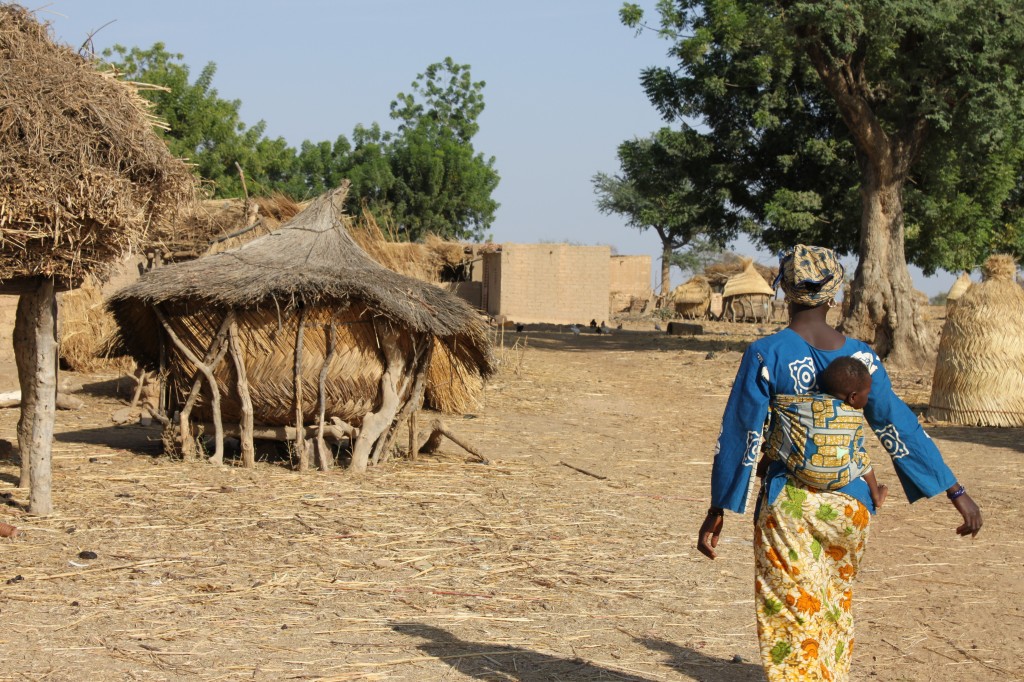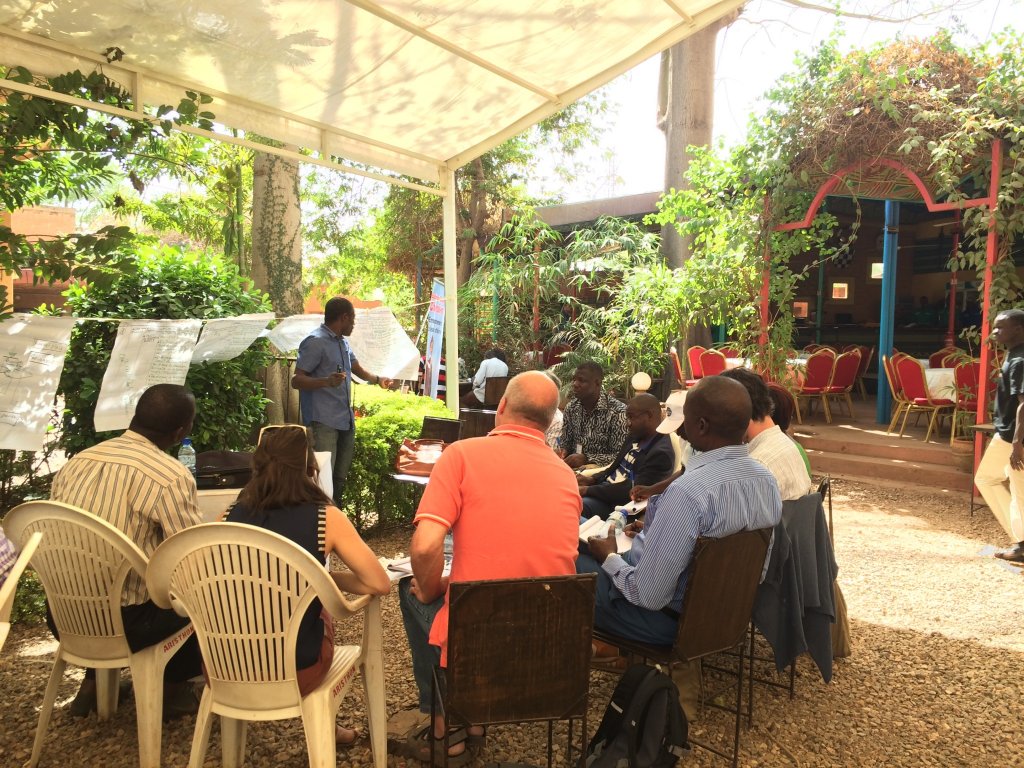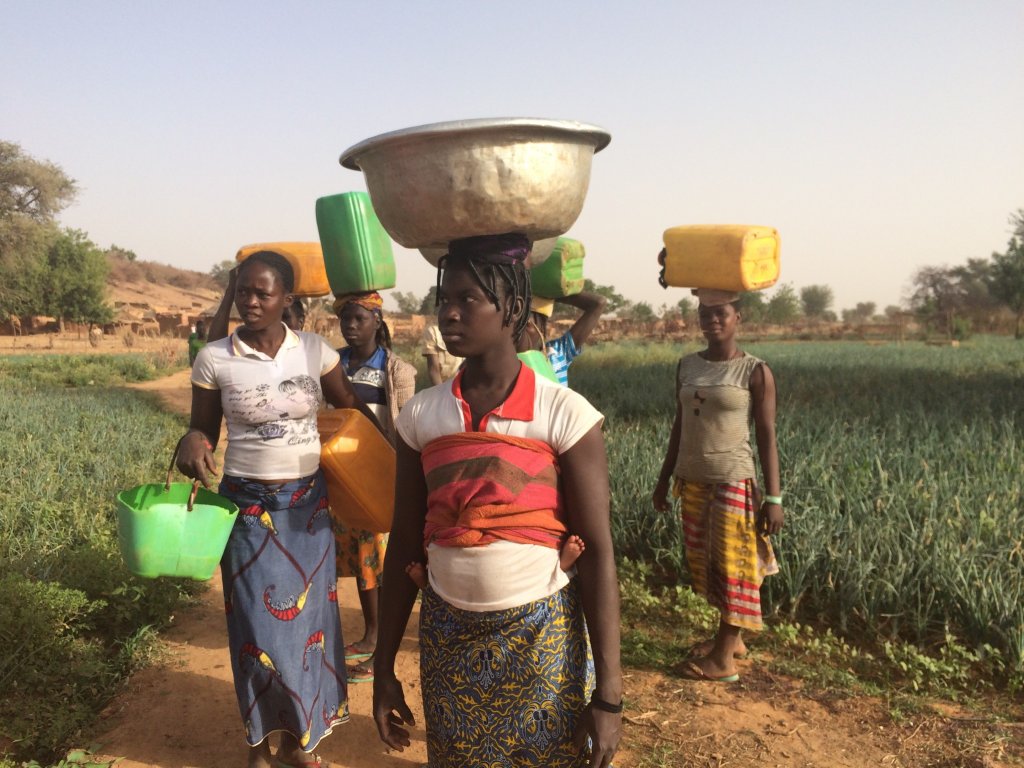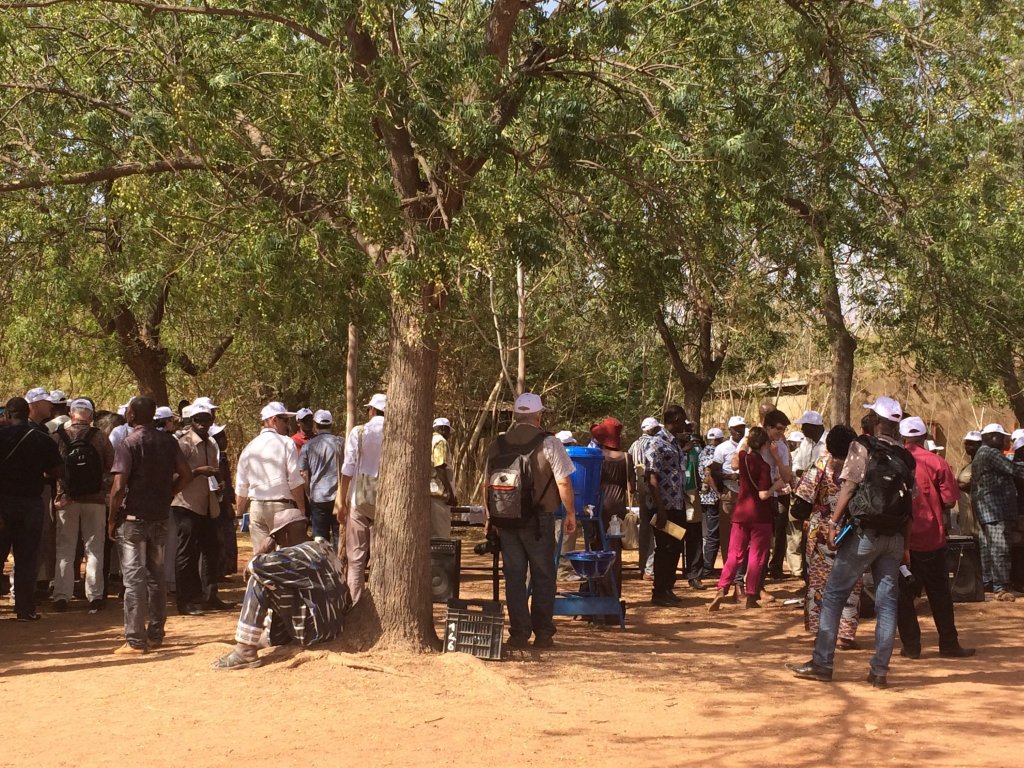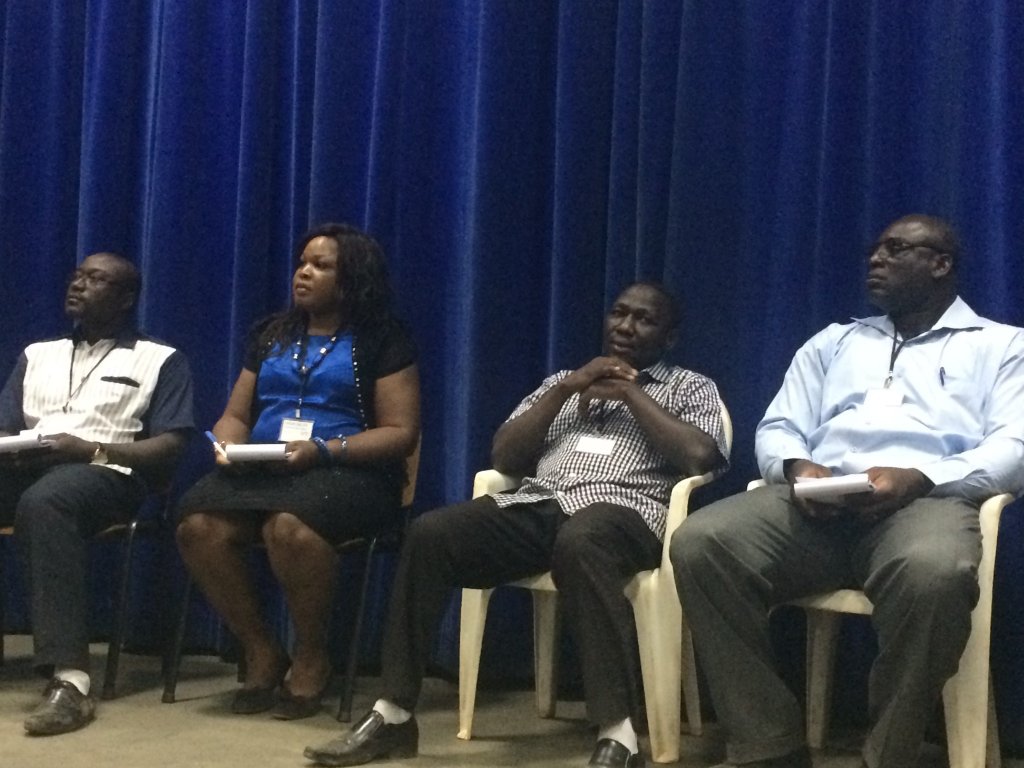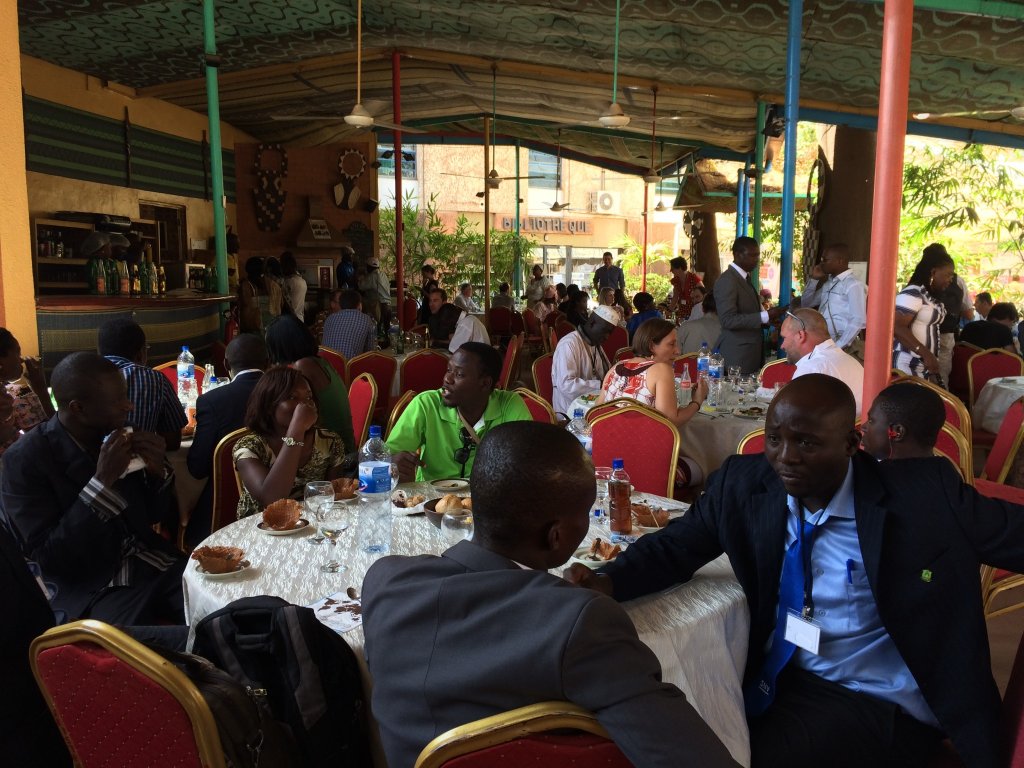Livelihoods teamed up with the NGO SOS SAHEL to organize a 3-day practical, hands-on seminar in Burkina Faso that gathered more than 100 diverse actors in agriculture from all across Africa (from more than 21 different countries!)- field experts, NGOs, companies, researchers, political and economic decision makers- to propose solutions to meet the challenges of tomorrow’s family farming in the arid zones of the Sahel.
The objective of the Livelihoods Camp, held from February 23-26 in Ouagadougou, Burkina Faso, was to promote an exchange of ideas and initiatives and to build a dynamic network of public and private actors involved in agriculture and sustainable development in order to contribute to the fight against climate change, food insecurity, and poverty in Africa.
In 2050, the world’s population will increase from 7 billion to 9 billion. In order to meet this leap in demand, food production must double and innovative strategies will be necessary to combat hunger, which already affects 1 billion people today.
Consensus has been growing around the crucial role of family farmers- defined as those who cultivate less than 2 hectares of land- in ensuring food security for our future populations. Today, 500 million family farmers produce 70 percent of the world’s food supply. Their contribution to global food security is thus disproportionately high. This is a tragic paradox: the people who are expected to feed the world do not even have enough to feed themselves.
The economic, social and environmental stakes linked to family farming are particularly high in Africa, especially in West Africa. The Sahel region, which spans Africa from East to West and borders the Sahara desert, is particularly vulnerable to the effects of climate change, with 30% of its lands severely degraded. Today, family farmers in Africa are faced with major obstacles: weak average yield per hectare, the lack of general and technical training among producers, and the insufficiently structured commercial and development channels, etc.
Yet there is a silver lining: the potential of family farming in Africa is tremendous. 7 out of 10 economies currently experiencing the world’s highest growth rates are located in Africa. Additionally, Africa’s population is growing faster than anywhere else in the world. With 40 percent of the population younger than age 15, the labor force is gigantic. Furthermore, developing the agricultural sector is by far more efficient for reducing poverty compared to any other sector, according to the United Nation’s 2012 report on Africa’s economy.
Livelihoods Camp participants, who represented 80 farmers’ cooperatives, NGOs, development and research organizations, co-developed solutions for sustainable agriculture adapted to and replicable in the drylands of Africa. The main theme of the Livelihoods Camp was: “Towards Thriving & Sustainable Family Farming.” Participants were divided into small working groups tasked with building solutions for rural communities across five sub-themes:
• Solutions to produce more, more sustainably (i.e. increase yield per hectare)
• Solutions for the empowerment and autonomy of family farming (i.e. reduce illiteracy among farmers and help minimize the marginalization of women)
• Solutions to lead, conduct, and manage effective change (i.e. improving the lives of farmers to facilitate the emergence of a resilient family agriculture)
• Solutions to access markets and make a living from farming (i.e. commercializing products, transforming farming into a profitable activity)
• Solutions to adapt to the challenges of climate change (i.e. how to reduce desertification, how to practice farming when access to water is limited)
Participants of the Livelihoods Camp included 26 winners of the international contest “Farmers have talent!” launched by Livelihoods and SOS SAHEL in 2014. Contest winners, who hailed from Burkina Faso, Benin, Cameroon, DRC, Ethiopia, Ghana, Ivory Coast, Kenya, Malawi, Mali, Togo and Uganda all had a chance to present their initiatives to the other actors of family farming, go on field visits, and actively participate in the workshops.
This concept of bringing together people with diverse networks and skills is well aligned with one of the main ideas that will be discussed at the United Nations Climate Change Conference (COP21) that will be held in Paris in 2015.
“When faced with global challenges, no single institution or single individual can come up with solutions on its own,” said Bernard Giraud, President of Livelihoods Venture, the service company that manages Livelihoods’ two environmental funds. “This is why a co-creative approach like that of the Livelihoods Camp 2015 is essential to leveraging impact. We need all actors to come together in order to address challenges in the most effective way.”
The Livelihoods Camp in Burkina Faso was organized by Livelihoods and the NGO SOS SAHEL with the support of the French Global Environment Facility (FFEM) and the Permanent Interstate Committee for Drought Control in the Sahel (CILSS).
This is the third edition of the Livelihoods Camp. The 1st Livelihoods Camp, organized by Livelihoods, was held in Paris, France followed by a second edition in the Araku Valley, India in 2012. The last edition of the camp in India brought together 140 participants from 21 countries, representing 61 different organizations. The concept of Livelihoods Camp was born out of the belief that the success of large scale impactful projects depends on capacity building and knowledge sharing between diverse practitioners.
Read more about the Livelihoods Camp 2015 here: http://www.livelihoodscamp2015.org/?lang=en


